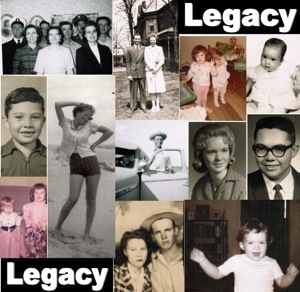
I don’t mind if you have something nice to say about me . . . . I want to leave a legacy.
Nichole Nordeman’s song, “Legacy,” explores the concept that God’s idea of success is not the world’s idea of success. Being a fan and knowing the depth of her writing, I can well imagine that this piece is as much a warning to Nichole herself as it is to the listener, for in it, she expresses her great desire to shine the Light of God instead of her own light:
I won’t lie, it feels alright to see your name in lights
We all need an ‘Atta boy’ or ‘Atta girl’
But in the end I’d like to hang my hat on more besides
The temporary trappings of this world.
The legacy Nichole defines in the remainder of the song is very specific: choosing love, pointing to God so that His mark is left on the good she does, leaving offerings out of her abundance, living mercy and grace, and praising God without worrying about what others might think about her. In other words, Nichole defines legacy as a true life lived in Christ, being so committed to shining His light, that our ego or pride gets pushed aside so that God always comes first.
At first, living this way may seem like we have placed our ego on a chair, waiting for an outing that will never happen again. Our egos feel deflated and cast aside. But, at the same time, when we see our egos laid out in this way, we see them for the pathetic things they are. For, what is more lonely than a ball gown and an empty pair of slippers, lying like the promise of something that will never really be as wonderful as one might have imagined?
When we empty ourselves of ourselves, we make room for Love, for the Holy Spirit to fill us and shine for others in a world of darkness. We are calm, strong, patient, merciful, and we always know peace.
This putting aside of the ego is a hard, life-long practice, however. It takes discipline to face each day knowing you plan to pay attention to your inner thoughts, your words, your actions. What motivates you? What does your self-talk revolve around? Are you concerned about being right because it makes you feel better, or are you looking out for what is the rightness of God’s truth, which begins with love and compassion?
Working on my writing is also an act of fighting the ego. I must constantly hold myself to a standard that seeks to shine the right kind of Light. If all I want is to see my name in lights, i.e. write the “great American novel,” then I am no better than any other humanist who has attempted to make herself feel better about herself because somehow I have couched my endeavors in the lingo of making the world a better place. But, if I really believe that God has given me a certain ability with words in order to serve Him, then I have to keep praying that my ego doesn’t get in the way of the messages He wants me to send.
I also have to fight the desire to hole myself up in a corner and write all the time instead of doing some of the other things that a life in Christ requires. Love, mercy, patience, and offerings are not exactly accomplished through written words on the internet or in a book. Balancing the talents God gives us to work for His good is a daily act of saying no to the ego so that our choices are based on God’s needs (which is most often the needs of others) instead of our own wants.
Nichole sums it up best:
Just want to hear instead, “well done, good and faithful one;”
No, I don’t mind if you have something nice to say about me.





